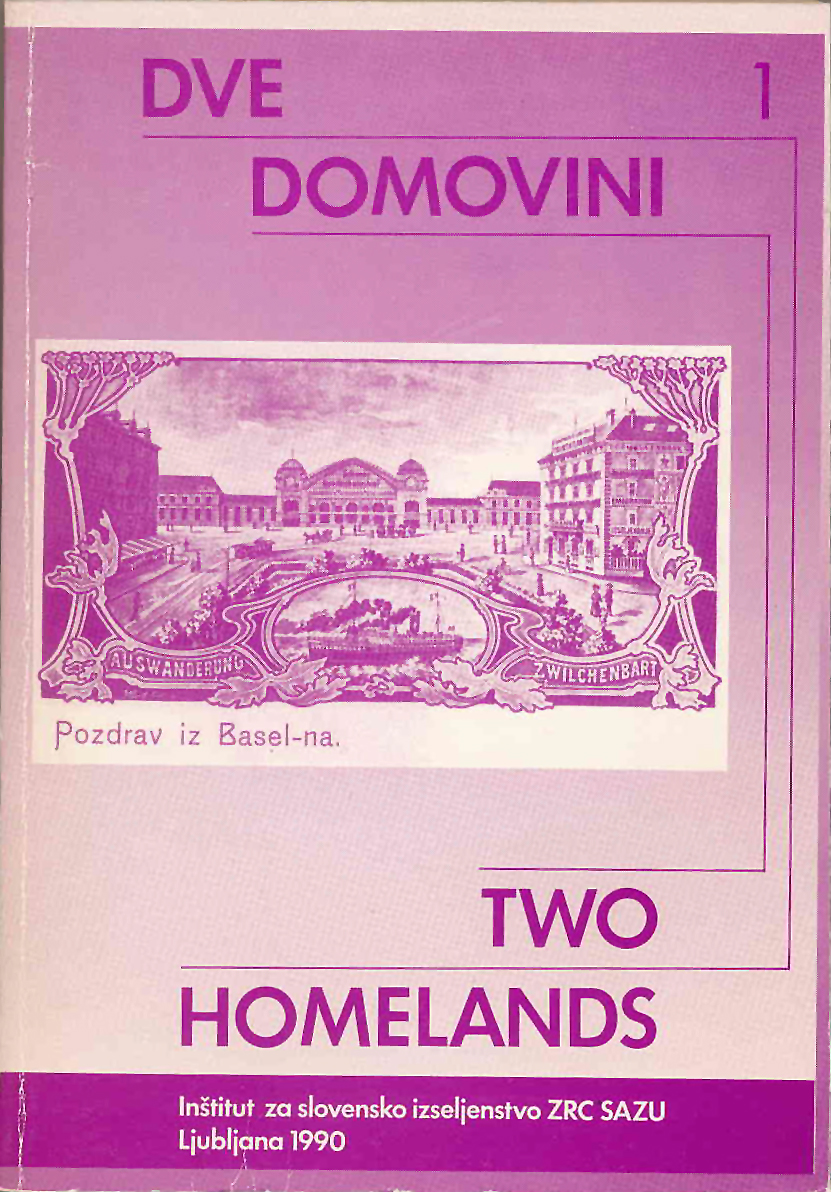Problems and Perspectives of Ethnic Identification: Withering Away or Reaffirmation?
Abstract
Slovene emigrants who went to the USA after World War Two radically differ from the previous generations in their considerably higher degree of education, general knowledge and proficiency in English. On the basic of his own experience, the author lists some characteristics of this group, its attitude toward other emigrants and toward the research on its own ethnic heritage. Among other thinks he ascertains that American Slovenes preserve their language in the first generation, but really in the second. They keep it a little longer in their religious practice but never in their public lives. The higher the educational level they brought into the States, the longer they cling to the Slovene language and their ethnic identity. On the other hand, the higher the level of education they have acquired in English, the faster and easier they become “Americanised”.
Downloads
References
Rado L. Lencek, On Literatures in Diasporas and the Life Span of Their Media, a paper presented at the Symposium on Contemporary Literatures and Cultures of the United States of America and Canada, Bled, Slovenia (Yugoslavia), 9-14 May 1988.
Cf., Rado L. Lencek, O jeziku in zavesti narodnega porekla, New York: Slovene Ethnic Heritage Studies Center, 1978.
Conversations With Czeslaw Milosz, Translated by Richard Lourie, New York: Harcourt Brace Jovanovich, 1987.
Louis Adamic, The Native’s Return. An American Immigrant Visits Yugoslavia and Discoveres His Old Country (New York and London: Harper & Brothers, 1934); My Native Land (New York: Harper & Brothers, 1943). The quote is from My Native Land, p. 31.
Eric A. Kovačič, 1988, personal communication.
Rudolf Čuješ, 1988, personal communication.
Downloads
Published
How to Cite
Issue
Section
License

This work is licensed under a Creative Commons Attribution-NonCommercial-NoDerivatives 4.0 International License.
Authors guarantee that the work is their own original creation and does not infringe any statutory or common-law copyright or any proprietary right of any third party. In case of claims by third parties, authors commit their self to defend the interests of the publisher, and shall cover any potential costs.
More in: Submission chapter





